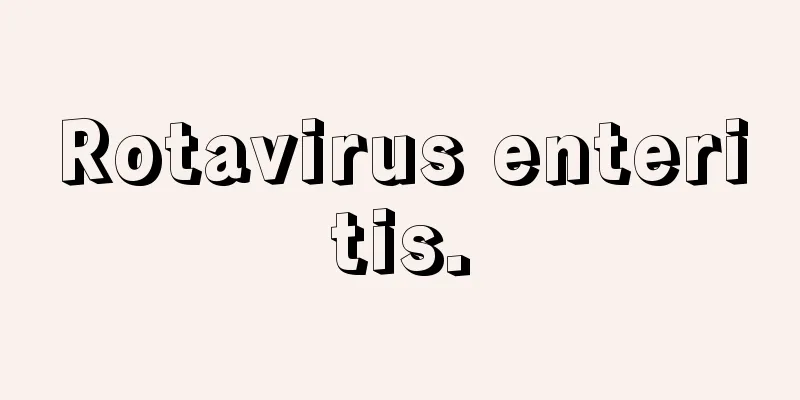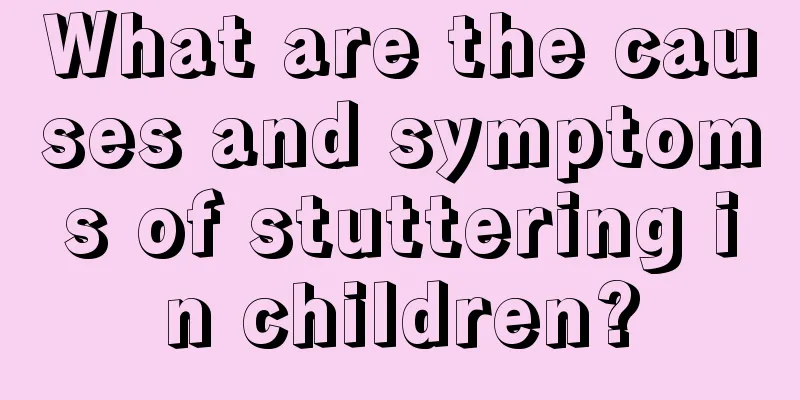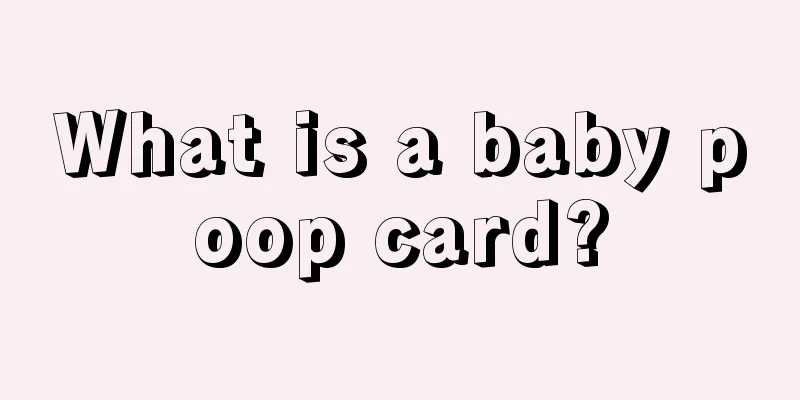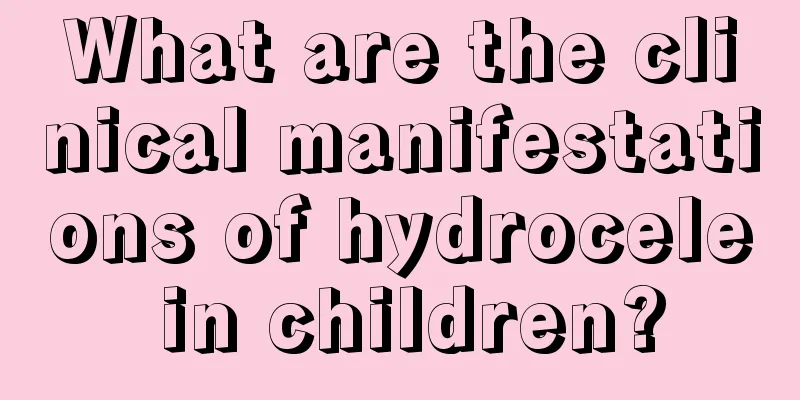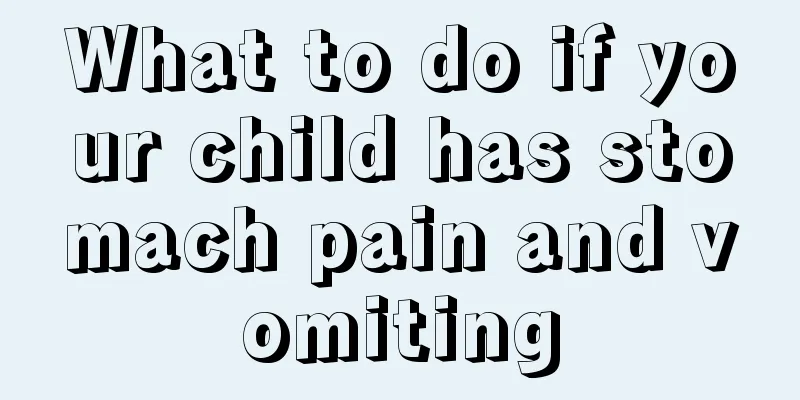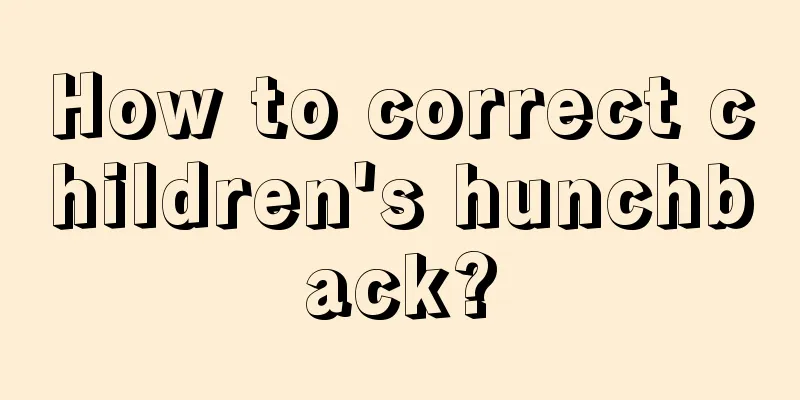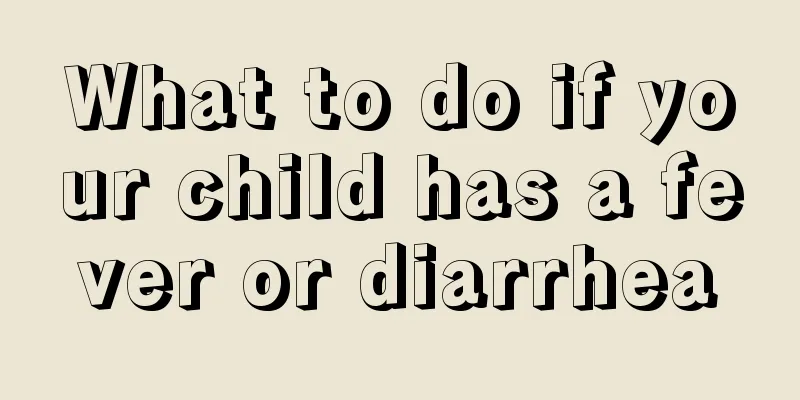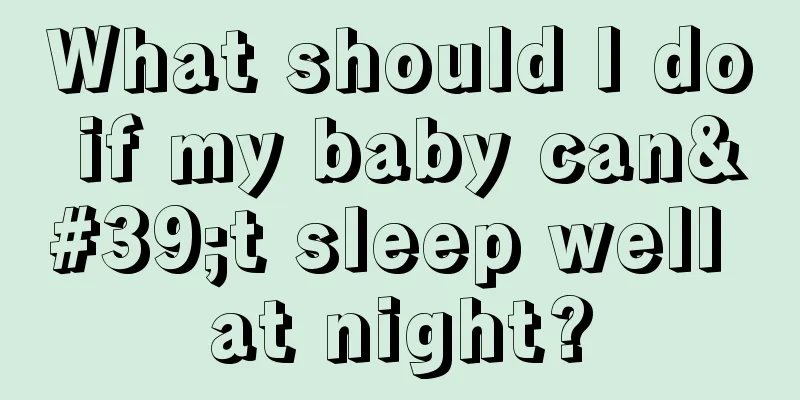What is the reason for children's oliguria?
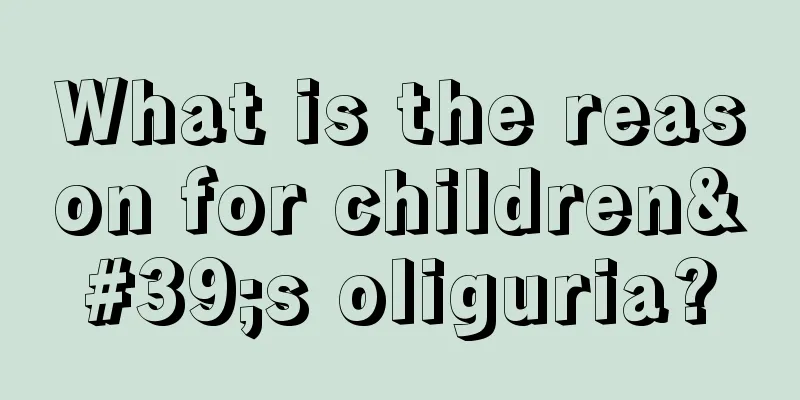
|
Once children have oliguria, timely treatment must be given. Parents must observe their physical changes and any abnormal reactions must not be ignored. A decision must be made as soon as possible. Moreover, when oliguria occurs, it is not just this symptom that will manifest. Other organs and tissues will also be affected, and more or less symptoms will appear. What is the reason for the baby's less urine? 1. Oliguria with renal colic is seen in renal artery thrombosis or embolism, and kidney stones. 2. Oliguria accompanied by palpitations, shortness of breath, chest tightness and inability to lie flat are seen in heart failure. 3. Oliguria accompanied by massive proteinuria, edema, hyperlipidemia and hypoproteinemia are seen in nephrotic syndrome. 4. Oliguria accompanied by fatigue, poor appetite, ascites and yellow skin is seen in hepatorenal syndrome. 5. Oliguria accompanied by hematuria, proteinuria, hypertension and edema are seen in acute nephritis and rapidly progressive nephritis. 6. Oliguria accompanied by fever, low back pain, frequent urination, urgency and pain during urination are common in acute pyelonephritis. 7. Oliguria accompanied by dysuria is seen in prostatic hypertrophy. 1. General treatment Rest in bed, eat properly, and those with renal insufficiency should eat a low-salt, high-protein diet. 2. Treatment of the cause For prerenal cases, volume expansion is given; for renal cases, improvement of renal circulation and removal of inducing factors are given; for postrenal cases, surgeons are generally asked to relieve obstruction and other treatments. 3. Symptomatic treatment Maintain electrolyte balance, nutritional support and other treatments. 4. Intake and output monitoring When vital signs are unstable, ECG monitoring is required. Oliguria refers to a urine volume of less than 400 ml in 24 hours or less than 17 ml per hour. It is seen in patients with acute nephritis, massive blood loss, excessive secretion of antidiuretic hormone and aldosterone, renal artery compression by tumor, diarrhea, vomiting, heavy sweating, heart failure and shock. Treatment needs to be targeted at the cause: pre-renal treatment requires volume expansion; renal treatment requires improving renal circulation and removing inducing factors; post-renal treatment requires relieving obstruction and other treatments. Symptomatic treatment: maintaining electrolyte balance, nutritional support, etc. 1. Differential diagnosis of prerenal acute renal failure Prerenal ARF may occur in a state of hypovolemia or insufficient effective circulating volume. At this time, if the blood volume is replenished in time, renal function can be quickly restored, and a fluid repletion test can be used for differentiation. At this time, the urine sediment examination often changes slightly, and the urine diagnostic index is of great significance for differential diagnosis. 2. The differential diagnosis of urinary tract obstructive acute renal failure has primary disease manifestations such as urinary tract stones, tumors, prostatic hypertrophy or bladder neck sclerosis. Imaging examinations can show dilatation or effusion of the renal pelvis and ureter. Clinically, polyuria and anuria may alternate. The differential diagnosis is often not difficult. 3. Differential diagnosis of acute renal failure due to intrarenal obstruction When acute renal failure is accompanied by diseases such as hyperuricemia, hypercalcemia, and multiple myeloma, it is often caused by casts blocking the renal tubules and leading to intrarenal obstruction. Checking blood uric acid, blood calcium, immunoglobulin, and light chain levels can help make a differential diagnosis. |
<<: Is it normal for a child to urinate less?
>>: Is it normal for babies to urinate less in summer?
Recommend
What are the disadvantages of baby swimming?
Most babies like water. In order to let their bab...
Summer schedule for primary and secondary schools
Primary and secondary school is a very important ...
Treatment for hoarseness in one-year-old babies
There are many reasons for hoarseness. When the v...
What to do if children have hyperthyroidism
If a child suffers from hyperthyroidism, it will ...
Can a 14-year-old wear a facial mask?
Making facial masks is the main way people take c...
What causes white spots on children's arms?
Generally, white spots on children's arms are...
Is it good to bathe newborns frequently?
Pediatric experts once said that babies are growi...
The reason why five-year-olds don't talk
When a child gets sick, especially a brain diseas...
What's wrong with a two-year-old baby coughing and vomiting?
A 2-year-old baby coughs and vomits because the c...
Three-year-old child has white spots on his face
A three-year-old child has white spots on his fac...
The baby is so sleepy that he just won't sleep
Some babies, especially those aged two or three, ...
Does uneven deciduous teeth affect permanent teeth?
Deciduous teeth and permanent teeth are the two t...
Kids cough recipes
Many parents are worried when their children have...
Bruise on baby's buttocks and back
Every change in the baby after birth is watched b...
How to treat children's swollen tonsils?
People's tonsils often become swollen. If a c...
